I'm new to ANTLR, and trying following grammar in ANTLRWorks1.4.3.
command
: 'go' SPACE+ 'to' SPACE+ destination
;
destination
: (UPPER | LOWER) (UPPER | LOWER | DIGIT)*
;
SPACE
: ' '
;
UPPER
: 'A'..'Z'
;
LOWER
: 'a'..'z'
;
DIGIT
: '0'..'9'
;
This seems to work OK, except when the 'destination' contains first two chars of keywords 'go' and 'to'. For instance, if I give following command:
go to Glasgo
the node-tree is displayed as follows:

I was expecting it to match fill word as destination.
I even tried changing the keyword, for example 'travel' instead of 'go'. In that case, if there is 'tr' in the destination, ANTLR complains.
Any idea why this happens? and how to fix this?
Thanks in advance.
